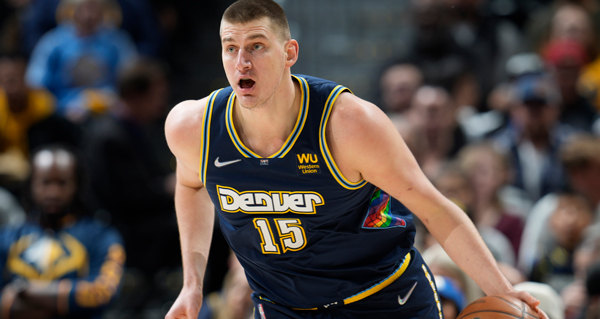It’s true for everyone else in the NBA, too, or at least it should be. Getting mentioned on the biggest sports broadcasts, which no one truly watches—they are designed for outrageous cherry-pickable soundbytes at best, but more so for the dentist office’s lobby and the airport terminal—is not a prize. Denver Nuggets fans, in recent days, seem to think otherwise. With their team having swept the Los Angeles Lakers in the Western Conference Finals, there are no games to watch for now, so the fanbase’s energy has been turned toward the question of whether national media properly respects them or not.
The answer has been, for years, an unambiguous no. Their games have rarely been shown to a broader audience, and their players are hardly ever discussed at length by the analysts with the largest platforms. And even after they coasted to the top seed in their conference this season, a majority of media members expected them to lose to the Phoenix Suns in the second round of the playoffs; the Nuggets blew them out three times, and left the Suns in shambles by the end of the series. It became clear over the course of this demonstration that many of those tasked with making said predictions were finally really watching the Nuggets for the first time, or at least the first time since their run to the Conference Finals in the 2020 pandemic “bubble” playoffs, the results from which many in the basketball world have found curious (read: insubstantial, goofy) reasons to dismiss.
The fundamental shape of NBA media coverage does not change according to anything like meritocratic conquest, though; a pretty much challenge-free waltz into the NBA Finals has not granted the Nuggets the esteem they theoretically deserve. The business is driven by the same cold, uninspiring numbers game as any other, and the Nuggets being as good as they are does not make them as big of a draw as the Lakers they defeated, or the recently (and disastrously) dispatched Boston Celtics. Those teams play for massive markets at baseline, but more importantly, they have multi-generational followings, rooting back to much earlier than the 1980’s, when both franchises exploded as the tentpole competitors in a rapidly upscaling sport. Every time their players, coaches, front office members, or owners breathe, analyzing this behavior is an instant path to clicks and eyeballs that no insurgent champion can yet compete with.
If this sounds like a qualitatively broken industry, incapable of doing anything but what some financier demands is necessary because a short view that damns the holistic—well, yes. Obviously. This has been clear from the jump. Is there a version of national sports media in the past that was more thoughtful about its subject, and willing to take on the new and risk peeving their chum-guzzling existing audience? Maybe. But it would’ve been only marginally better. Every media corporation is going to push the equivalent of Coca-Cola in their domain. A team like the Nuggets simply isn’t that.
They can become it, perhaps. A championship in the coming weeks would help. Look at the Golden State Warriors: historically dismal, they went to the Finals six times in nine years, winning four championships, mostly with the same core players. After their first title, and an awe-inspiring 73 victories the following season, they cracked into the party of oft-discussed teams, solidifying and expanding their place in that realm over the next several seasons. That’s what it takes, unless you want to take a shortcut to attention, which in the going landscape means featuring a player who sparks debates about mannerisms, values, lifestyle, and morality; topics that sports will never be nearly as popular as, but that they frequently veer into, third-rail style.
Ja Morant, for instance, is more famous now than he was when “being excellent at basketball” was his only broadly known trait. Brandishing a gun on Instagram Live, and being the subject of several criminal complaints off the court, has elevated his celebrity substantially. Populist sports media is always on the prowl for this kind of stuff, because it reaches a much larger audience than that which simply loves the game and knows it well. Firearms, social media, and fame? That’s an extremely inclusive hot take intersection. Your life is certainly better if you don’t make yourself think like a media executive, but the exercise may be useful to those acting confused about why a business-first basketball team with minimal mainstream history and no loud characters has been under-publicized.
Through a healthier lens, this modest road is seen as an honorable one. From 1999 to 2014, San Antonio Spurs fans enjoyed six Finals appearances and five championships without their team ever becoming a primary subject in the sphere of red-meat-hocking talking heads. Their place in the atmosphere made up by those bloviators was as a last-resort kind of ace card they could play to indicate their knowingness; their reverence for the quiet contender that consistently shows up in June, ready to take the trophy whether anyone cares about them or not. It’s early in the Nuggets’ arc, but they’re already grabbing a lot of that humble glory in the contemporary NBA. And if they keep this up for years to come, and the lack of idiotic bright lights bonanzas never begin, that should be cause for celebration, not outrage.



